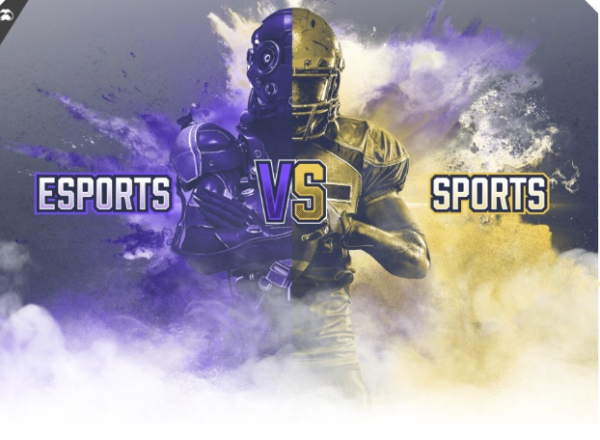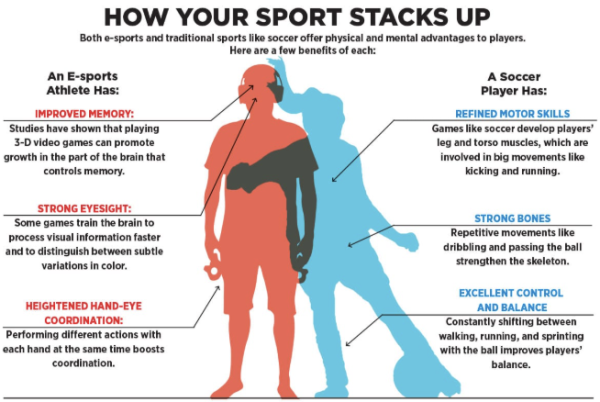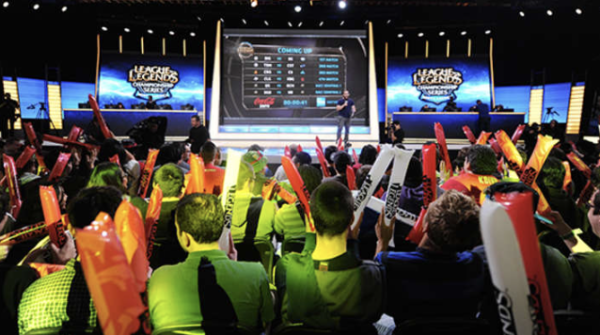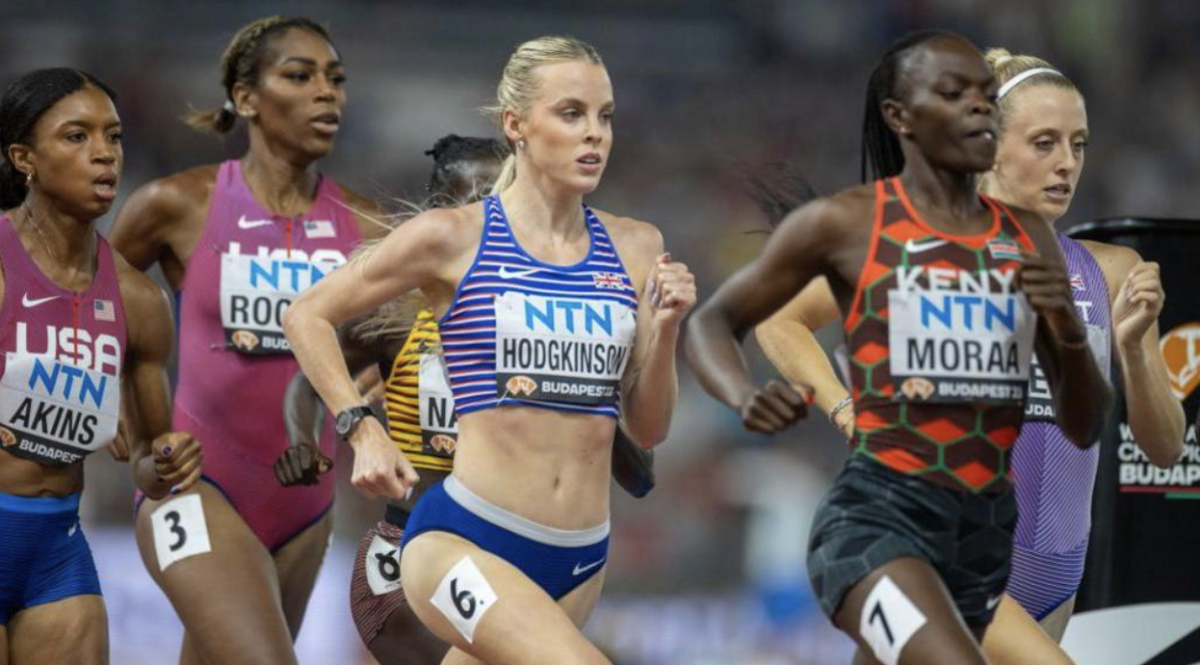In today’s world, video games are more than just a recreational activity – they are now viewed as serious competitions known as esports. Even though esports players compete for millions of dollars, practice every day for hours, and play in front of large crowds, people still debate one important question: Are esports really sports?
Many people answer with a resounding “yes” since esports players require talent, skill, teamwork, and focus, just like conventional sports athletes. Professional gamers typically train between six to eight hours per day, observing their opponents and perfecting their reaction times (Intel). In fact, the 2021 League of Legends World Championship alone gathered nearly 74 million viewers worldwide (St. Louis Fed). In fact, the 2021 League of Legends World Championship alone gathered nearly 74 million viewers worldwide (St. Louis Fed). If competition, training, and performance are elements of sports, then esports certainly qualify.

Source: “Key Differences in Sports and Esports” by Amila Pathirana, LinkedIn Pulse.
Others argue, however, that esports should not be classified as actual sports because they do not require the same level of physical activity. When an average individual hears the word “athlete,” they picture someone running on a field or throwing a ball, not someone sitting at a desk in front of a computer. Esports critics argue that esports are more similar to playing chess or solving puzzles, which are challenging but not as physically demanding. They are also concerned that referring to gaming as a sport will obscure the difference between physical and inactive activity, especially among younger players, who may start viewing gaming as a substitute for real exercise and become less physically active.
However, the definition of “sport” has changed significantly over time. Not everything that constitutes a sport is highly physical. Archery, bowling, and even golf rely more on focus and precision than on bodily movement. In other words, the idea that esports will succeed only if they are physically challenging or require body movement may no longer be reasonable. The evolution of esports is evidence of how we compete has been altered by technology, and esports evolve to fit society.

In my opinion, esports should be recognized as sports. While they might not involve running laps or lifting weights, they require discipline, collaboration, and mental strength. Esports athletes have to cope with pressure, stress, and perform in high-stakes situations, just like players of other sports. Professional gamers spend up to ten hours a day training and are subject to both physical and mental fatigue from long hours spent competing (Cleveland Clinic). The coordination and quick thinking they exhibit while playing is truly impressive.
Whether people want to admit it or not, esports are shaping the future of competition. Just as individuals were skeptical about skateboarding or snowboarding prior to them becoming Olympic sports, gaming could be the next significant development in what we recognize as “sports.” The world is changing, and so is the concept of “sport.” Recent tournaments like the Esports World Cup even offer record-breaking $70 million prize pools – showing that the world is already beyond considering esports seriously (Reuters).

Source: “Should Playing Video Games Be Considered a Sport?” SI Kids, Sports Illustrated.
As technology continues to evolve, so does the way we define athleticism and competition. Esports challenge the traditional idea of what it means to be an athlete, proving that skill, discipline, and mental endurance can exist beyond physical movement. So maybe the real question isn’t whether esports are sports, but whether our understanding of “sports” has evolved enough to include them?



